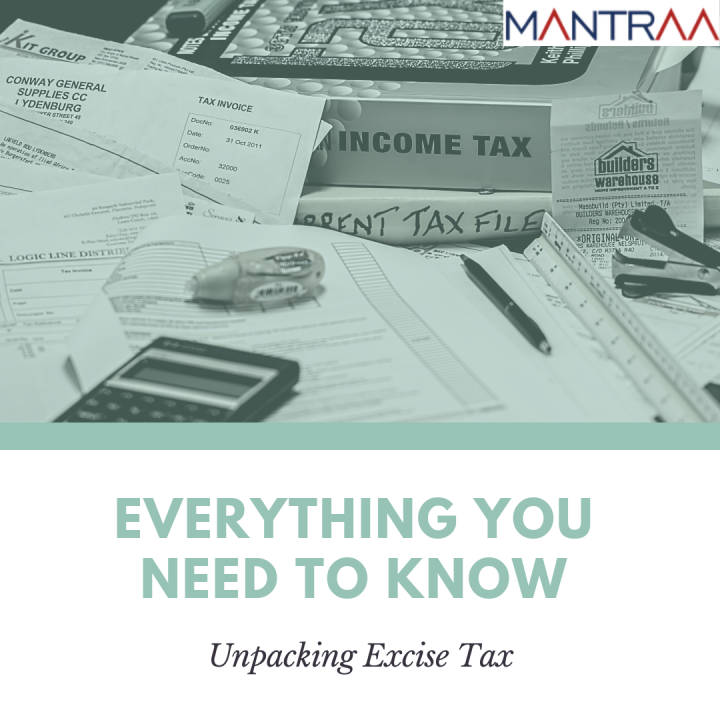Value Added Tax (VAT) was introduced in UAE on January 1, 2018. It is a tax on the consumption or use of goods and services.
VAT is a type of indirect tax that is levied on the value added to goods and services at each stage of production or distribution. The UAE government introduced VAT to diversify its revenue sources and reduce its reliance on oil revenues.
The standard VAT rate in UAE is 5%, with some goods and services being exempted or zero-rated. Registered businesses are required to charge VAT on their taxable supplies and services, and then pay the collected VAT to the government. Non-resident businesses may also be required to register for VAT if they make taxable supplies in UAE. VAT returns must be filed regularly, and failing to comply with VAT regulations may result in penalties and fines.
What Is A Vat Rate?
A VAT rate is the percentage at which value-added tax (VAT) is charged on goods and services in a particular country. In the UAE, the VAT rate is currently set at 5%. This means that consumers in the UAE have to pay an additional 5% on the purchase price of most goods and services.
The VAT rate is applied to a wide range of products and services, including food and beverages, clothing, electronics, and professional services. It is important for businesses and consumers to be aware of the VAT rate in order to accurately calculate the cost of goods and services.
The UAE government introduced VAT in 2018 as a way to diversify its revenue sources and reduce reliance on oil. The implementation of VAT has had a significant impact on businesses and consumers in the UAE, and it is crucial to stay informed about any changes in the VAT rate.
When Start Vat In UAE?
Value Added Tax (VAT) was introduced in the United Arab Emirates (UAE) on January 1, 2018. The implementation of VAT is a significant change for businesses and consumers in the UAE. It is essential for businesses to understand the VAT regulations and ensure compliance with the law.
VAT is applicable to a wide range of goods and services, with some exceptions and zero-rated supplies. Businesses need to register for VAT if their taxable supplies and imports exceed the mandatory registration threshold. Understanding the VAT registration process and complying with the regulations is crucial for businesses operating in the UAE.
It is important to seek professional advice to navigate the complexities of VAT and ensure compliance with the law.
How Much Is Vat On UAE?
The Value Added Tax (VAT) in the UAE is set at a standard rate of 5%. This tax is applicable to most goods and services, with certain exemptions and zero-rated supplies. Businesses operating in the UAE are required to register for VAT if their taxable supplies and imports exceed the mandatory registration threshold.
VAT-registered businesses must charge and collect VAT on taxable supplies and file regular returns with the Federal Tax Authority. It’s essential for individuals and businesses to understand the VAT regulations in the UAE to ensure compliance and avoid any penalties.
Additionally, there are specific rules and regulations regarding VAT in certain industries, such as real estate and financial services, which must be taken into consideration. Understanding the VAT system in the UAE is crucial for businesses and individuals to navigate the tax landscape effectively.
What Is 0% Vat?
VAT in UAE is a crucial aspect of the country’s taxation system. Understanding the concept of 0% VAT is essential for businesses and consumers alike. This rate applies to specific goods and services that are exempt from VAT, meaning that no tax is charged on these transactions.
It is important to be aware of the items that fall under this category to ensure compliance with the tax regulations in the UAE. By familiarizing yourself with the details of 0% VAT, you can make informed decisions regarding your business operations and financial transactions in the country.
What Is Exempt From Vat In UAE
VAT, or Value Added Tax, was introduced in the UAE in 2018. It is a consumption tax applied to most goods and services. However, there are certain items that are exempt from VAT in the UAE. These include basic food items such as bread, milk, and fresh fruits and vegetables.
Additionally, healthcare services and education provided by government-recognized institutions are also exempt. Furthermore, financial services, residential properties, and local passenger transport are not subject to VAT. It is important to note that while these items are exempt from VAT, there may be certain conditions or criteria that need to be met for the exemption to apply.
It is advisable to consult the official guidelines and regulations provided by the UAE government to ensure compliance with VAT requirements. Understanding what is exempt from VAT can help individuals and businesses better manage their finances and comply with the law.
Who Is Eligible For Vat In UAE
Value Added Tax (VAT) is a consumption tax imposed on goods and services in the UAE. Businesses that meet specific criteria are required to register for VAT and charge it on their taxable supplies. Eligibility for VAT in the UAE depends on the annual turnover of a business, which includes the total value of taxable supplies and imports.
If a business’s annual turnover exceeds the mandatory registration threshold, it must register for VAT. Additionally, businesses with an annual turnover below the voluntary registration threshold have the option to register for VAT. Certain categories of goods and services are exempt from VAT, such as healthcare, education, and local transport.
Understanding the eligibility criteria for VAT in the UAE is crucial for businesses to ensure compliance with the tax regulations.
How Much Is Vat Refund In UAE
Value Added Tax (VAT) in the UAE is a common topic for both residents and tourists. Many visitors are curious about the VAT refund process in the country. The UAE offers a VAT refund scheme for eligible tourists, allowing them to claim back a percentage of the VAT paid on purchases made during their visit.
To qualify for a VAT refund, tourists must meet certain criteria and follow specific procedures. The refund amount varies depending on the items purchased and the total amount spent. It’s essential for tourists to familiarize themselves with the VAT refund process to ensure they can claim back any eligible amounts before leaving the UAE.
How Much Vat For Gold In UAE
In the UAE, the VAT rate for gold is set at a standard rate of 5%. This means that any purchase or sale of gold in the country will be subject to this tax. It is important for individuals and businesses involved in the gold industry to be aware of this VAT rate and factor it into their pricing and financial calculations.
Understanding the VAT regulations for gold in the UAE is crucial for compliance with the law and to avoid any potential penalties or fines. Whether you are a gold buyer, seller, or investor, staying informed about the VAT implications for gold transactions will help you navigate the market effectively and make informed decisions.
How Many Types Of Vat In UAE
VAT in UAE consists of two types, namely Standard Rate VAT and Zero Rate VAT. The Standard Rate VAT is set at 5% and is applicable to most goods and services in the country. On the other hand, Zero Rate VAT applies to specific goods and services that are exempt from the standard rate.
Understanding the distinction between these two types of VAT is crucial for businesses operating in the UAE to ensure compliance with the tax laws. Proper knowledge of VAT regulations can help businesses manage their finances effectively and avoid any potential penalties for non-compliance.
What Is The Formula For Vat?
VAT in the UAE is a crucial aspect of the country’s tax system. Understanding the formula for calculating VAT is essential for businesses operating in the region. The VAT formula involves multiplying the taxable amount by the VAT rate to determine the total VAT payable.
This calculation is important for businesses to accurately assess their tax liabilities and ensure compliance with VAT regulations in the UAE. By following the guidelines set forth by the government, businesses can navigate the complexities of VAT and manage their tax obligations effectively.
What Is The Vat Limit In UAE?
Value Added Tax (VAT) was introduced in the United Arab Emirates (UAE) on January 1, 2018. The standard rate for VAT in the UAE is 5%. This tax is applicable to most goods and services provided in the country. However, certain essential items such as basic food items, healthcare, and education are exempt from VAT.
The VAT registration threshold in the UAE is AED 375,000. This means that businesses whose annual supplies exceed this threshold are required to register for VAT. It is important for businesses to understand the VAT regulations and ensure compliance to avoid any penalties or legal issues.
Is Vat Paid Monthly Or Quarterly In UAE?
VAT in the UAE is paid on a quarterly basis. Businesses registered for VAT are required to submit their VAT returns and make the payment within 28 days after the end of each quarter. This means that VAT is not paid on a monthly basis but rather on a quarterly basis.
It is important for businesses to keep track of their taxable supplies and expenses during each quarter in order to accurately calculate their VAT liability. Failure to submit VAT returns and make the payment within the specified timeframe may result in penalties and fines.
Therefore, it is crucial for businesses to stay compliant with the VAT regulations and meet their obligations in a timely manner. By understanding the VAT payment schedule and following the necessary guidelines, businesses can ensure smooth operations and avoid any potential issues with the authorities.
Frequently Asked Questions
What Is Vat Charged On In UAE?
VAT is charged on most goods and services in the UAE, including food, clothing, electronics, and professional services.
What Is Vat In Uae In Nutshell?
VAT in UAE is a 5% tax on most goods and services. It’s applied at each stage of the supply chain and paid by consumers.
What Is The Mandatory Threshold For Vat In UAE?
The mandatory threshold for VAT in UAE is AED 375,000. If a business’s annual turnover exceeds this amount, it must register for VAT.
What Are The Advantages Of Vat In UAE?
VAT in UAE offers advantages like increased government revenue for public services and infrastructure. It promotes fiscal sustainability and reduces reliance on oil revenue. VAT also encourages businesses to be more efficient and transparent, while providing consumers with fairer pricing and greater choice.
Wrapping Up
Understanding VAT in the UAE is crucial for individuals and businesses alike. From its implementation to its impact on various sectors, this blog post has covered all the essential aspects. By staying informed and complying with the regulations, you can navigate the VAT system more effectively and avoid any potential penalties.
Keep these key points in mind, and you’ll be better equipped to handle VAT-related matters in the UAE.

Ahmed bin Rashid, a seasoned travel enthusiast and visa process expert and the successful Businessman in Dubai. With an LLB from the University of Bolton in 2015, he combines his legal knowledge with his passion for exploration, offering invaluable insights into Business formation and visa processes around the globe. Follow Ahmed’s captivating journeys and expert advice to embark on your unforgettable adventures & Business.

